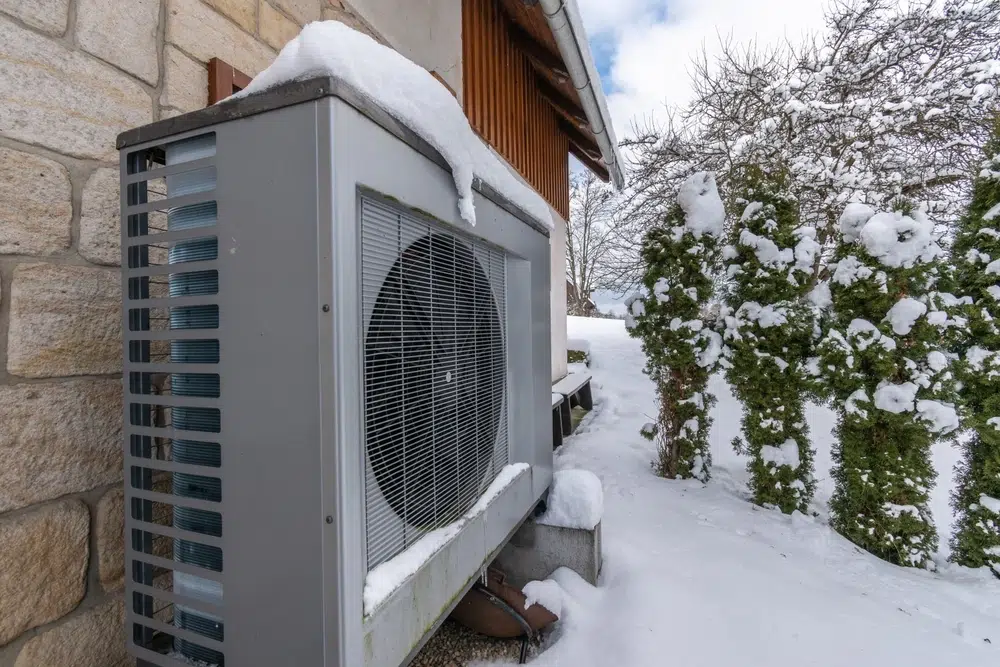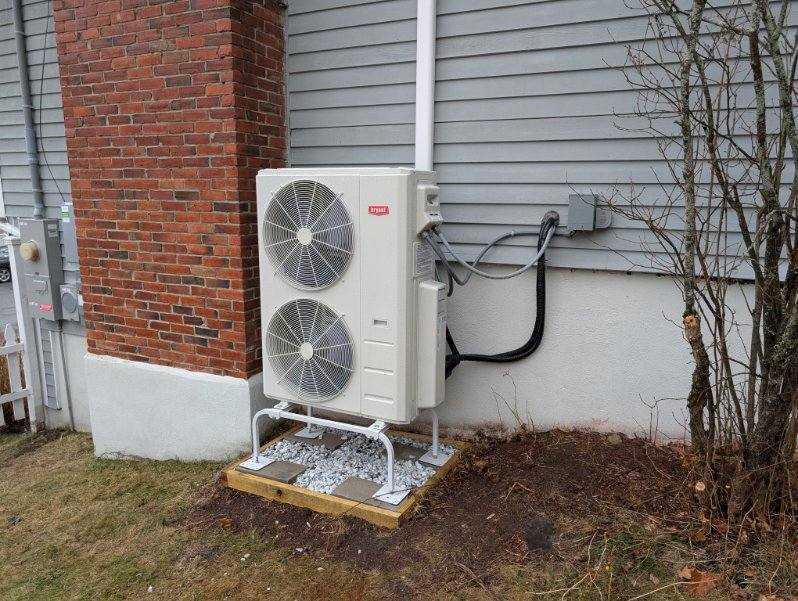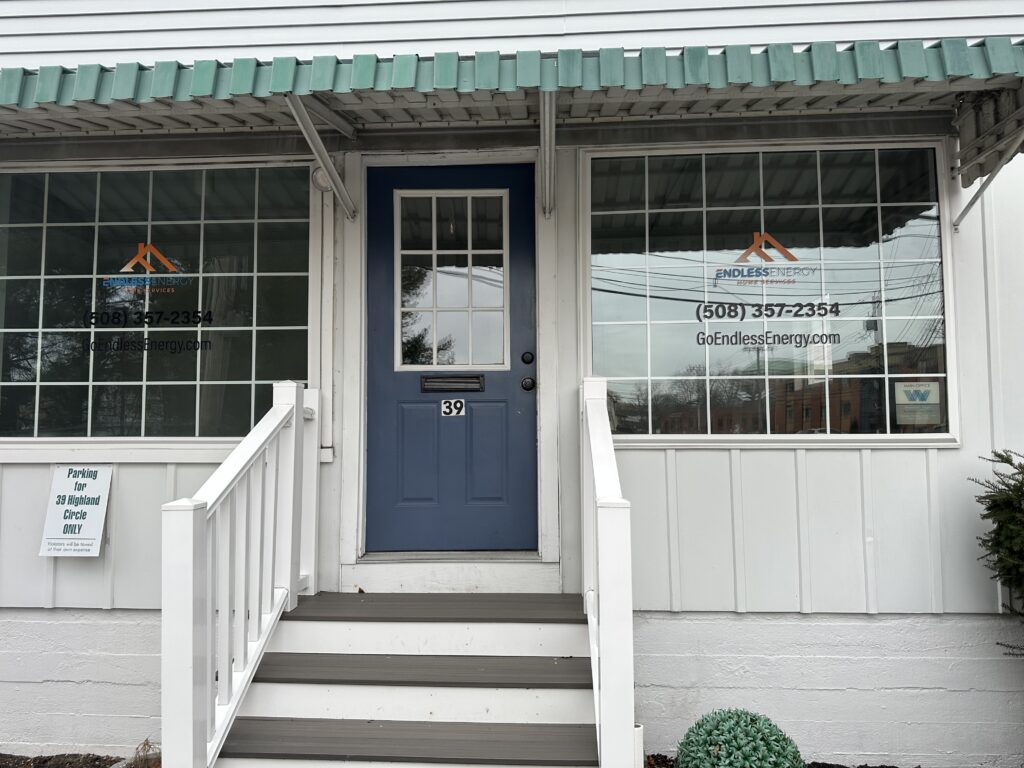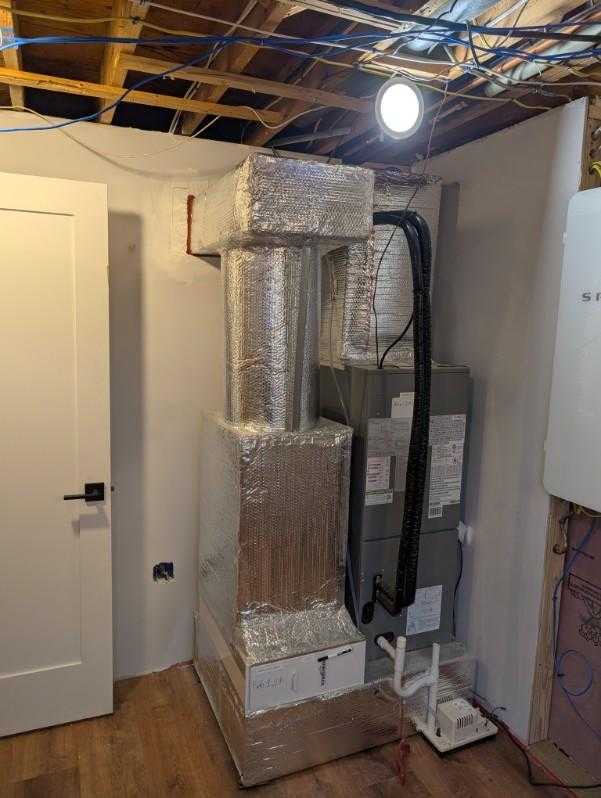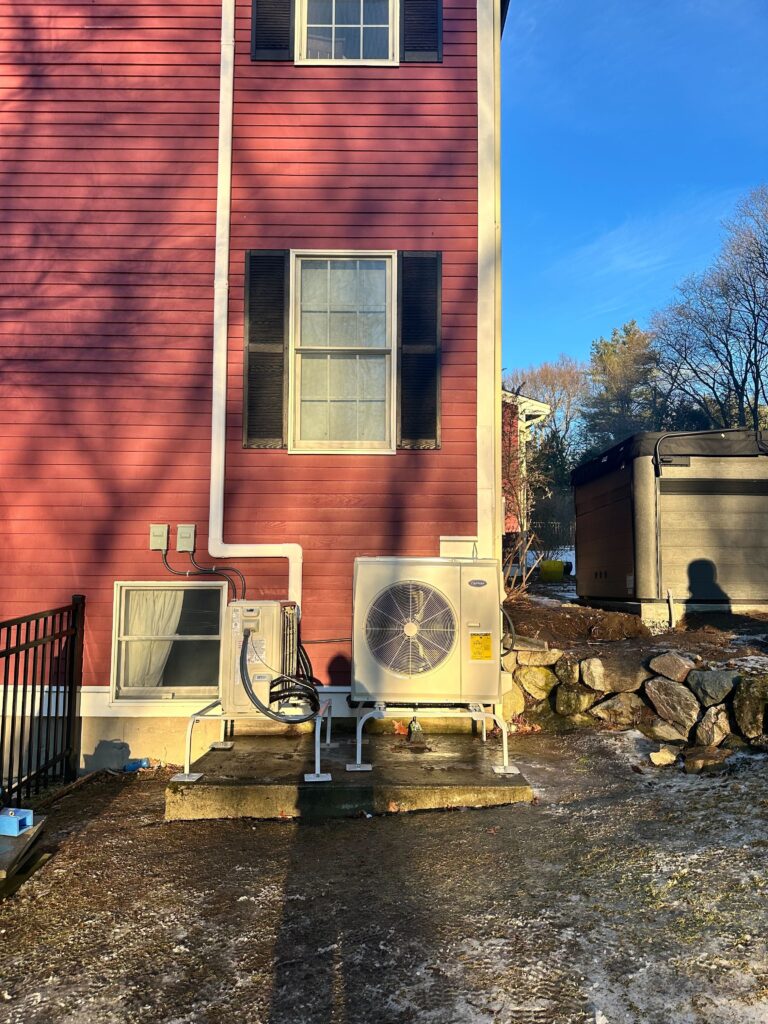Table of Contents
ToggleHeat Pumps: Excellent Option for Heating your Massachusetts Home
Massachusetts gets cold in the winter, often dipping below 0°F. This makes an efficient home heating system a major priority for homeowners. A heat pump is an excellent home heating solution for Massachusettans to consider because it not only maintains a comfortable temperature year-round, but it’s also energy-efficient, saving you money on your utility bills and wasting less power to heat your home.
Heat pump popularity is rising among energy-conscious homeowners who want to lower their energy bills and reduce their impact on the environment.
Can heat pumps handle cold winters?
Our home office is in Marlborough, MA, so we understand winter weather in the Bay State very well. Modern cold-weather heat pumps can absolutely handle our climate, providing energy-efficient heating in temperatures as low as -15°F.
What Is a Heat Pump and How Does It Work?
A heat pump is a type of heating and cooling system that transfers heat instead of generating it. They take heat from the air outside in the winter and move it indoors, and when you want to cool your home, the process is reversed, moving the heat from inside your house back outdoors.
Heat pumps have refrigerant in them that circulates through coils. Refrigerants are very cold and can absorb heat from outside, even when temperatures are freezing. When the refrigerant is compressed inside the heat pump, the temperature increases, and the heat is then released into your home and circulated through vents or ductwork, using fans.
There are different types of heat pumps to choose from, including:
Air source heat pumps
Air source heat pumps are the most common type of heat pump, extracting heat from the air outside. They’re relatively easy for professionals to install and work well year-round.
Ground source heat pumps
Ground source heat pumps, or geothermal heat pumps, take heat from the ground to heat your home. Even in the cold Boston area in the winter, just a few feet below the ground, the temperatures remain relatively steady, sitting between 40° and 70°F, making the ground a perfect resource for an unending heat supply.
Ductless mini-split systems
As the name suggests, ductless mini-split systems don’t require ductwork to circulate heat through your home. Instead, it has multiple indoor units to disperse heat into different rooms or zones throughout the house.
At Endless Energy, our HVAC technicians will help you find the right type of heat pump for your needs. They’ll assess your home size and layout and learn more about your preferences and your budget, then provide you with options that’ll work for you. Contact us today to schedule your in-home consultation or to learn more about how heat pumps work in cold weather.
Why Heat Pumps Are Great for Winter
At Endless Energy, we install high-quality cold-weather heat pumps for winter heating in Massachusetts that provide reliable heating down to -15°F. With their new cold-climate technology advancements, dual-stage or variable-speed compressors, they provide steady heat, efficiency, and consistent comfort.
Comparing Heat Pumps vs. Traditional Heating Systems
When you compare a heat pump vs. a furnace, you’ll find pros and cons to each.
| Feature | Heat Pump | Traditional Heater |
| Energy Efficiency | Very high (transfers heat) | Lower (burns fuel) |
| Operating Cost | Lower | Higher fuel cost |
| Environmental Impact | Eco-friendly | Carbon emissions |
| Year-Round Use | Heating + Cooling | Heating Only |
Traditional heating systems
Electric heaters, gas furnaces, and boilers generate heat using electricity or the chemical process of combustion. Not only does this use more energy to create heat in the first place, but many traditional heaters also produce greenhouse gas emissions, which pollute the air and damage the local environment. Some homeowners choose to install a furnace as a backup for when temperatures reach extreme cold, but in Massachusetts, these days are rare.
Heat pumps
Heat pumps are more efficient than other types of heaters because they transfer heat rather than generating it. This uses less energy, making it more efficient. They may cost a bit more upfront, but the long-term savings make the investment worth it.
Energy Savings and Environmental Benefits
Heat pumps operate ultra-efficiently and may transfer up to 3 times more heat energy than the electrical energy they use. A typical household’s energy bill is around $1900 per year, with nearly half of that from heating and cooling. Homeowners enjoy up to 50% in energy savings with heat pumps.
The benefits of installing a heat pump include:
- A lower carbon footprint
- Heat pump tax credits
- Increased home value
- Lowered demand on local energy grids
Wondering where you can cut energy use in your home? Click here to check if your home is eligible for a Mass Save® Home Energy Assessment.
Addressing Common Concerns
Let’s explore the answers to some of the most common questions we receive about winter heat pump performance and operation:
Do heat pumps work in freezing weather?
Yes! Heat pumps work great in freezing weather. As we mentioned earlier, there are high-quality modern heat pumps that have been designed to operate in very cold temperatures, providing consistent heating down to -15°F. They may continue to operate fine below these temperatures, but with less efficiency, using more energy to keep your house comfortable.
In the past, there were concerns about heat pump operation in freezing weather, but over the decades, companies have made major improvements to the design and efficiency of these systems. Many have variable-speed operation, allowing you to adjust the heater’s output based on your needs.
Will I need backup heat if I install a heat pump in Massachusetts?
Backup heat is not usually necessary, but some homeowners opt to have a backup heater available in case of prolonged cold snaps or power outages. A gas or oil furnace is a popular choice for backup heat.
At Endless Energy, we also offer heat pumps with a dual fuel system that will automatically switch to the furnace when temperatures remain too cold for the heat pump to operate efficiently.
Are heat pumps expensive to install?
The average cost for heat pump installation varies, depending on the type of system you choose, the complexity of the installation, and the size of your home. For most homeowners in Massachusetts, heat pump installation runs between $3,000 and $8,000, but that cost may be offset by tax rebates if you’re upgrading your HVAC to a more energy-efficient system, not to mention the energy bill savings.
Maintenance Tips for Winter Efficiency
Heat pumps need regular maintenance to provide uninterrupted heat in your home. This includes:
- Regular filter changes (at least every 1-3 months)
- Clearing outdoor units of snow and debris
- Clean indoor registers, and keep them unblocked
- Scheduling annual professional tune-ups
At Endless Energy, we provide ongoing support to our customers, ensuring your heat pump is working well year-round. Consider booking a fall maintenance appointment for optimal heating performance and another tune-up in the spring so you’re ready for the summer heat. This will extend the unit’s lifespan, reduce wear and tear, and allow a qualified HVAC technician to solve any small issues before they require costly repairs.
Contact Endless Energy for Expert Heat Pump Solutions
If you’re looking at options for home heater replacement, heat pumps offer excellent comfort, efficiency, and savings. At Endless Energy, we offer expert heat pump installation and energy-efficient solutions throughout our Massachusetts service area.
Our certified HVAC technicians are highly experienced and will provide friendly, prompt service so that you can enjoy better whole-home heating right away. Contact Endless Energy for a quote or to speak to a knowledgeable representative to schedule your in-home consultation today.
